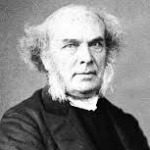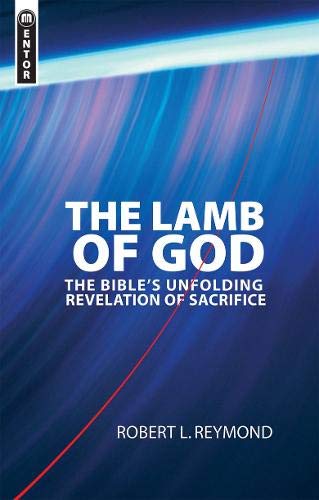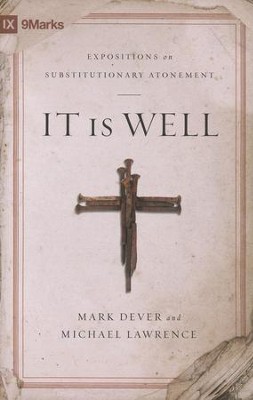Quotes about Jesus_Christ-Death-Substitution
It would not have been right for the restoration of human nature to be left undone, and…it could not have been done unless man paid what was owing to God for sin. But the debt was so great that, while man alone owed it, only God could pay it, so that the same person must be both man and God. Thus it was necessary for God to take manhood into the unity of His Person, so that he who in his own nature ought to pay and could not should be in a person who could… The life of this Man was so sublime, so precious, that it can suffice to pay what is owing for the sins of the whole world, and infinitely more.
I gave Him a crown of thorns, He gave me a crown of righteousness. I gave Him a cross to carry, He gave me His yoke which is easy, His burden which is light. I gave Him nails through His hands, He gave me safely into His Father’s hands from which no power can pluck me. I gave Him a mock title, ‘This is the King of the Jews.’ He gave me a new name and made me a king and a priest to God. I gave Him no covering, stripping His clothes from Him, He gave me a garment of salvation. I gave Him mockery, casting the same in His teeth, He gave me Paradise. I gave Him vinegar to drink, He gave me Living Water. I crucified and slew Him on a tree, He gave me eternal life. It was my sinfulness that put Him there. It is His sinlessness that puts me here.
Encouragement – Oxygen for the Soul, Christian Focus, 1997, p. 157-158. Used by Permission.
If Christ be not the Substitute, He is nothing to the sinner. If He did not die as the Sin-bearer, He has died in vain. Let us not be deceived on this point, or misled by those who, when they announce Christ as the Deliverer, think they have preached the Gospel. If I throw a rope to a drowning man, I am a deliverer. But is Christ no more than that? If I cast myself into the sea, and risk my life to save another, I am a deliverer. But is Christ no more? Did He but risk His life? The very essence of Christ’s deliverance is the substitution of Himself for us, His life for ours. He did not come to risk His life; He came to die! He did not redeem us by a little loss, a little sacrifice, a little labor, a little suffering. “He redeemed us to God by his blood,” “the precious blood of Christ” (Rev 5:9; 1Pe 1:19). He gave all He had, even His life, for us.
When the Lord Jesus Christ offered up Himself a sacrifice unto God the Father, and had our sins laid upon Him, He did give more perfect satisfaction unto Divine justice for our sins than if you, and I, and all of us had been damned in hell unto all eternity. For a creditor is more satisfied if his debt be paid him all down at once, than if it be paid by the week.
A Puritan Golden Treasury, compiled by I.D.E. Thomas, by permission of Banner of Truth, Carlisle, PA. 2000, p. 29.
There would be absolutely no benefit to us if Jesus merely lived and died as a private person. It is only because He lived and died as our representative that His work becomes beneficial to us.
Copied from The Gospel for Real Life by Jerry Bridges, © 2002, p. 37-38. Used by permission of NavPress – www.navpress.com. All rights reserved. Get this book!
If He hides the sin, or lesseneth it, He is faulty; if He leaves it still upon us, we die. He must then take our iniquity to Himself, make it His own, and so deliver us; for thus having taken the sin upon Himself, as lawfully He may, and lovingly He doth, it followeth that we live if He lives; and who can desire more?
Having become with us the Son of Man, He has made us with Himself sons of God. By His own descent to the earth He has prepared our ascent to heaven. Having received our mortality, He has bestowed on us His immortality. Having undertaken our weakness, He has made us strong in His strength. Having submitted to our poverty, He has transferred to us His riches. Having taken upon Himself the burden of unrighteousness with which we were oppressed, He has clothed us with His righteousness.
God made His own Son to be sin that He might make the sinner a saint. All through the Bible it is revealed that Our Lord bore the sin of the world by identification, not by sympathy. He deliberately took upon His own shoulders, and bore in His own Person, the whole massed sin of the human race – “He hath made Him to be sin for us, who knew no sin,” and by so doing He put the whole human race on the basis of Redemption.
[Jesus] was ordained to be put into the state and condition of a sinner in our stead; not into the practical and experimental state of sin, but the penal state of a sinner, to be a sacrifice for it, not to be polluted with it.
Our crimes merited our sufferings, but His own mercy made Him a sufferer for us; for us He sweat those drops of blood, for us He trod the winepress alone, for us He assuaged the rigor of divine justice, for us, who were not only miserable, but offending creatures, and overwhelmed with more sins to be hated, than with misery to be pitied. He was crucified for us by His love, who deserved to die by His power, and laid the highest obligation upon us, who had laid the highest offenses upon Him.
Our unrighteousness put us under a necessity of a sacrifice, and His righteousness made Him fit to be one.
Believers are personally guilty, but by virtue of the satisfaction of this sacrifice imputed to them, they are judiciously counted innocent. Christ, who never sinned, is put in a state as if He had; and we, who have always sinned, are put into a state by Him as if we never had. As we are made righteous in Him, so He was made sin for us.
Jesus then puts Himself into our place, to free us from the arrest of justice, and bear those strokes, which, by virtue of the law, wrath had prepared for us…It was a death which justice required, and at the sight of it justice was so calmed, that the sharp revenging sword drops out of its hand.
If the honor of the law could have been vindicated, and the justice of God satisfied, by the temporary groans of a creature, not only the goodness of God, but the justice of God would release him; but because the justice of God could never have been satisfied, the person of the sinner must always have been a sufferer. Christ therefore suffering a cursed death, suffered what we should have suffered; death was threatened to us, and death was inflicted on Him.
To accept so willingly of such hard conditions for us, and die so ignominiously upon the cross we had deserved! He knew the burden of sin, He knew the terrors of hell, yet He did not shrink from the imputation of the one, or the sufferings of the other; it was not a willingness founded upon ignorance, but upon a clear-sighted affection. He was willing to be reproached, that we might be glorified; He would be like to us, that we might be conformed to Him; and took our human nature, that we might in a sort partake of His divine.
God’s answer for your guilt is not to explain it away by circumstances that have victimized you, but to call you to own your sins fully and to entrust them all to Jesus Christ by faith. Jesus Christ is our substitute. He has taken our penalty.
Crushed for Our Inequities by Mark Dever and Michael Lawrence taken from It Is Well, by Mark Dever and Michael Lawrence, copyright 2010, Crossway Books, a division of Good News Publishers, Wheaton Illinois 60187, www.crosswaybooks.org, page 57.
[Jesus] didn’t die on behalf of or for the benefit of, but He literally died in their stead, or in their place. They deserved death, but because He died for them, now they will not die.
Ransom for Many by Mark Dever and Michael Lawrence taken from It Is Well, by Mark Dever and Michael Lawrence, copyright 2010, Crossway Books, a division of Good News Publishers, Wheaton Illinois 60187, www.crosswaybooks.org, page 73-73.
Along with everybody on the face of the earth, you are constantly sinful. These thousands of sinful thoughts, words, and actions cause the perfectly holy God to judge you as deserving of hell. But Christ’s death in the place of sinful people, as a true substitute, provides the way of escape. God pardons the one who comes to Him because Jesus took the punishment in his place. In simple terms we may say that the just penalty for sins either falls on you or Christ.
Pursuing God – A Seeker’s Guide, Christian Communicators Worldwide, 2003, p. 22, www.CCWtoday.org.
Christ’s death was substitutionary… Jesus was taking our place. That is why the charges brought against Him were blasphemy and treason, for these are the very charges we face before the judgment seat of God. We have made ourselves into gods, and thus blasphemed His holy Name; we have rebelled against His rightful rule over our lives, and we are guilty of high treason against his gracious majesty.
Unless the Son of God died in our place, taking the punishment we deserve for our sins, we will not be saved, and we will not be citizens of His kingdom. Our guilt is too deep. If that is true, then we cannot soften the edges of the gospel message. We cannot move the penal, substitutionary death of Jesus to the side, we cannot replace it with any other truth, and we cannot reimagine it as something less offensive (and ultimately less wonderful!) than it really is. If we do, then we will present the world with something that is not saving, and that is therefore not good news at all.
The Gospel – God’s Self-Substitution for Sinners by Greg Gilbert, taken from Don’t Call it a Comeback, edited by Kevin DeYoung, copyright 2011, Crossway Books, a division of Good News Publishers, Wheaton Illinois 60187, www.crosswaybooks.org, page 81. Get this book!
Redemption, reconciliation, adoption, healing, conquest – all these are ways the Bible talks about the victory Christ won on the cross. That does not, however, mean that penal substitution is just one image of the cross among many, and that we may pick and choose which one we want to emphasize. The Bible’s images of atonement don’t work like that; they are not an all-you-can-preach buffet. Actually, each of the images the Bible uses to describe the atonement finally finds its resolution in the fact that Jesus died in the place of His people. If you trace down the reality that lies behind the images, that is, if you ask enough how and why questions, what you find at the bottom of every single one of them is penal substitution.
The Gospel – God’s Self-Substitution for Sinners by Greg Gilbert, taken from Don’t Call it a Comeback, edited by Kevin DeYoung, copyright 2011, Crossway Books, a division of Good News Publishers, Wheaton Illinois 60187, www.crosswaybooks.org, page 80. Get this book!
If we think it is unfair for us to be represented by Adam, then we should also think it is unfair for us to be represented by Christ and to have His righteousness imputed to us by God.
Systematic Theology, Zondervan, 1994, p. 495. Used by Permission.
Get this book!
The divine Son, one of the three persons of the one God, He through whom, from the beginning of the creation, the Father has revealed Himself to man (John 1:18), took man’s nature upon Him, and so became our representative. He offered Himself as a sacrifice in our stead, bearing our sin in His own body on the tree. He suffered, not only awful physical anguish, but also the unthinkable spiritual horror of becoming identified with the sin to which He was infinitely opposed. He thereby came under the curse of sin, so that for a time even His perfect fellowship with His Father was broken. Thus God proclaimed His infinite abhorrence of sin by being willing Himself to suffer all that, in place of the guilty ones, in order that He might justly forgive. Thus the love of God found its perfect fulfillment, because He did not hold back from even that uttermost sacrifice, in order that we might be saved form eternal death through what He endured. Thus it was possible for Him to be just, and to justify the believer, because as Lawgiver and as Substitute for the rebel race of man, He Himself had suffered the penalty of the broken law.
Taken from “Why the Cross?” by H.E. Guillebaud, © 1947, p. 130, 185, InterVarsity Christian Fellowship/USA. Used with permission of the InterVarsity Press, P.O. Box 1400, Downers Grove, IL 60515. www.ivpress.com.
Such are we in the sight of God the Father, as is the very Son of God Himself.
Such we are in the sight of God the Father, as is the very Son of God Himself. Let it be counted folly or frenzy or fury or whatever. It is our wisdom and our comfort; we care for no knowledge in the world but this: that man has sinned and God has suffered; that God has made Himself the sin of men, and that men are made the righteousness of God.
I do believe and confess that Christ’s condemnation is my absolution, that His crucifying is my deliverance, His descending into hell is my ascending into heaven, His death is my life, His blood is my cleansing and purging, by whom only I am washed, purified and cleansed from all my sins, so that I neither receive nor believe any other purgatory, either in this world or in the other, whereby I am purged, but only the blood of Jesus Christ, by which all are purged and made clean forever.
The wrong that man had done to the Divine Majesty, should be expiated by none but man, and could be by none but God.
A Puritan Golden Treasury, compiled by I.D.E. Thomas, by permission of Banner of Truth, Carlisle, PA. 2000, p. 30
Penal substitution does not turn God into a cosmic child abuser. It does not reduce Christ to the passive victim of some divine injustice. It does not pit the Trinity against itself. No, in the God-forsakenness of Christ on the cross, the love of God and the justice of God are revealed on our behalf. United in purpose, Father and Son act in concert to save God’s people. The sinless Son of God bears our sin, and then God pours out the wrath that our sin deserves, and Jesus the Son endures it so that we, who deserve that wrath, might never encounter it. This is the gospel, the good news of the cross, and it calls us to forsake our sin, to turn away from it and embrace Christ, the forsaken one, so that we may not be forsaken.
Forsaken by Mark Dever and Michael Lawrence taken from It Is Well, by Mark Dever and Michael Lawrence, copyright 2010, Crossway Books, a division of Good News Publishers, Wheaton Illinois 60187, www.crosswaybooks.org, page 90.
On that cross, Christ endured the holocaust of God’s wrath against our sin and exhausted it.
The Story of Sacrifice by Michael Lawrence taken from Biblical Theology by Michael Lawrence, copyright 2010, Crossway Books, a division of Good News Publishers, Wheaton Illinois 60187, www.crosswaybooks.org. Page 163.
It’s not that faith itself is saving. It’s that faith is the way you acknowledge Christ as your substitute… Faith leans on Christ and trusts that when Christ died on the cross, He was dying in your place, for you.
The Story of Sacrifice by Michael Lawrence taken from Biblical Theology by Michael Lawrence, copyright 2010, Crossway Books, a division of Good News Publishers, Wheaton Illinois 60187, www.crosswaybooks.org. Page 163.
Our most merciful Father, seeing us to be oppressed and overwhelmed with the curse of the law…sent His only Son into the world and laid upon Him all the sins of all men, saying, “You be Peter that denier, Paul that persecutor, blasphemer and cruel oppressor, David that adulterer, that sinner who ate the apple in Paradise, that thief who hung upon the cross, and briefly, you be the person who has committed the sins of all men. See therefore that You pay and satisfy for them.”
Now I should like to know whether your soul, tired of its own righteousness, is learning to be revived by and to trust in the righteousness of Christ… My dear brother, learn Christ and Him crucified. Learn to pray to Him and, despairing of yourself, say, “You, Lord Jesus, are my righteousness, but I am your sin. You have taken upon Yourself what is mine and have given to me what is Yours. You have taken upon Yourself what you were not and have given to me what I was not.” Beware of aspiring to such purity that you will not wish to be looked upon as a sinner, or to be one. For Christ dwells only in sinners. On this account He descended from heaven, where He dwelt among the righteous, to dwell among sinners. Meditate on this love of His and you will see His sweet consolation.
This is that mystery which is rich in divine grace to sinners: wherein by a wonderful exchange our sins are no longer ours but Christ’s, and the righteousness of Christ not Christ’s but ours. He has emptied Himself of His righteousness that He might clothe us with it and fill us with it; and He has taken our evils upon Himself that He might deliver us from them. Learn Christ and Him crucified. Learn to pray to Him and, despairing of yourself, say, “Thou, Lord Jesus, art my righteousness, but I am Thy sin. Thou hast taken upon Thyself what is mine and hast given to me what is Thine. Thou hast taken upon Thyself what Thou wast not and hast given to me what I was not.”
Our most merciful Father…sent His only Son into the world, and laid upon Him all the sins of all men, saying, Be Thou Peter that denier; Paul that persecutor, blasphemer and cruel oppressor; David that adulterer; that sinner which did eat the apple in Paradise; that thief which hanged upon the cross; and briefly be Thou the person which hath committed the sins of all men; see therefore that Thou pay and satisfy for them [all].
Learn to know Christ and Him crucified. Learn to sing to Him, and say, “Lord Jesus, You are my righteousness, I am Your sin. You have taken upon Yourself what is mine and given me what is Yours. You have become what You were not so that I might become what I was not.
But the animal sacrifices weren’t that substitute. No person was ever delivered from divine judgment by the death of any animal. The repeated sacrifice of animals was simply a continual symbol of the fact that God does deliver by the death of an innocent substitute, but no animal was ever satisfactory to God and so the sacrifices went on and on and on and on by the millions. And the people waited for a sacrifice that would be satisfactory to God, to which all those unsatisfactory sacrifices pointed. That day came on that Friday when God chose His lamb and offered Him as a sacrifice, a substitute for sinners, and poured out His wrath on that innocent substitute.
The Final Passover, the First Communion. The sermon originally appeared at: (https://www.gty.org/library/sermons-library/42-269/the-final-passover-the-first-communion) at www.gty.org. © 1969-2008. Grace to You. All rights reserved. Used by Permission.
God treated Jesus on the cross as if He lived your life so He could treat you as if you lived His.
The Final Passover, the First Communion. The sermon originally appeared at: (https://www.gty.org/library/sermons-library/42-269/the-final-passover-the-first-communion) at www.gty.org. © 1969-2008. Grace to You. All rights reserved. Used by Permission.
“Christ died for all, therefore all died”…is so because Christ was the representative of all when He died. The death that He died on the cross was in itself the death of all. Since Christ was the representative of all, therefore all may have been said to have died there on the cross outside the walls of Jerusalem when Christ died.
If Christ is, to us, only our substitute to admire and not also our example to follow, we will not rouse ourselves to do hard things in obedience to Him. That will be spiritually deadening in the long run. If Christ is, to us, only our example to follow and not first our substitute to admire, we will not lean on Him as our savior and be freed from ourselves. That too is spiritually deadening in the long run. We can get it wrong and still thrive for a while. But in the long run, only a well-proportioned theology can keep us spiritually alive.
Think of it. In order for God to atone for man’s sin, someone had to subject Himself to death. Yet only one who had unlimited ability to atone for sin could do that, only a perfect man. He had to have unlimited ability to atone, because He would be shedding His blood for all humankind. He had to be perfect because God accepts only unblemished sacrifices. Who could do that? Only God. And God the Son shed His own blood for us (Acts 20:28) (Josh McDowell and Bart Larson).
Jesus, a Biblical Defense of His Deity, Josh McDowell and Bart Larson, Here’s Life Publishers, Inc., p. 90.
The purpose of our holy and righteous God was to save His church, but their sin could not go unpunished. It was, therefore, necessary that the punishment for that sin be transferred from those who deserved it but could not bear it, to one who did not deserve it but was able to bear it.
Meditation on the Glory of Christ, 1684, ch. 9. Get this book!
The Lord Christ comes to convinced sinners with His invitation: “Poor creatures! How sad is your condition! What has become of the beauty and glory of the image of God in which you were created? You are now in the deformed image of Satan and even worse, eternal misery lies before you. Yet look up once more; behold Me! I will put Myself in your place. I will bear that burden of guilt and punishment which would sink you to hell for ever. I will be made temporarily a curse for you, that you may have eternal blessedness.”
Meditation on the Glory of Christ, 1684, ch. 6. Get this book!
It was absolutely necessary either that the sinner should suffer in his own person, or in that of a substitute. Jesus became this substitute; He stood virtually in the sinner’s place, and endured in His holy body and soul the punishment due to Him; for He “was numbered with the transgressors.”
As Christ was not made sin by any sin inherent in Him, so neither are we made righteous by any righteousness inherent in us, but by the righteousness of Christ imputed to us.
Was He scourged? It was that “through His stripes we might be healed.” Was He condemned, though innocent? It was that we might be acquitted though guilty. Did He wear a crown of thorns? It was that we might wear the crown of glory. Was He stripped of His clothing? It was that we might be clothed in everlasting righteousness. Was He mocked and reviled? It was that we might be honored and blessed. Was He reckoned a malefactor, and numbered among transgressors? It was that we might be reckoned innocent, and justified from all sin. Was He declared unable to save Himself? It was that He might be able to save others to the uttermost. Did He die at last, and that the most painful and disgraceful of deaths? It was that we might live for evermore, and be exalted to the highest glory.
He hideth our unrighteousness with His righteousness, He covereth our disobedience with His obedience, He shadoweth our death with His death, that the wrath of God cannot find us.
A Puritan Golden Treasury, compiled by I.D.E. Thomas, by permission of Banner of Truth, Carlisle, PA. 2000, p. 162.
What a mystery of mercy is this! We have no righteousness of our own. Our best is but as filthy rags. God requires a righteousness, and one that will meet all the demands of His law, and satisfy His impartial justice, in order to our justification. Jesus, therefore, came to do, and to suffer, all that was necessary to make us righteous, divinely righteous. The righteousness of God, or as righteous as He is righteous. The righteous of God in Him. We now, therefore become righteous, perfectly righteous, not by obeying the law, but by faith in Christ, union to Christ, and participation with Christ. Faith brings us to Christ, the Holy Spirit unites us to Christ, and then we participate in all Christ has. His life is our righteousness, His death is our atonement, His intercession is our salvation. He took our place that we might take His. He came to toil for us that we may rest with Him. He sorrowed for us that we may rejoice with Him. He died for us that we may live with Him. Blessed Redeemer, how wondrous your love! How perfect your work!
It’s very simple, either Christ bears God’s wrath you deserve on Himself or you bear God’s wrath you deserve on yourself.
We took our sins and drove them like nails through his hands and feet. We lifted him high up on the cross of our transgressions, and then we pierced his heart through with the spear of our unbelief.
The heart of Christ became like a reservoir in the midst of the mountains. All the tributary streams of iniquity, and every drop of the sins of His people, ran down and gathered into one vast lake, deep as hell and shoreless as eternity. All these met, as it were, in Christ’s heart, and He endured them all.
O think, that he who was master of all heaven’s majesty came down to be the victim of all man’s misery!
Of late, I have heard things that I never dreamed of before, alleged even by professedly Christian ministers against the fundamental doctrines of God’s Word; and some have even dared to say that the substitution of Christ, His suffering in our stead, was not just. Then they have added that God forgives sin without any atonement whatever; but, if the first be not just, what shall I say of the second? If God continually forgives sin without taking any care of His moral government, if there be nothing done for the vindication of His justice, how shall the Judge of all the earth do right? Then the very foundations of the universe would be removed, and what would the righteous do? Depend upon this, whatever modern philosophy may say, “Without shedding of blood there is no remission of sin,” that is to say, without an atonement and an atonement consisting of the giving up of a life of infinite value, there is no passing by of human transgression.
God in his infinite mercy has devised a way by which justice can be satisfied, and yet mercy can be triumphant. Jesus Christ, the only begotten of the Father, took upon himself the form of man, and offered unto Divine Justice that which was accepted as an equivalent for the punishment due to all his people.
In Gods case, if He had said in the infinite sovereignty of His absolute will, “I will have no substitute, but each man shall suffer for himself, he who sinneth shall die,” none could have murmured. It was grace, and only grace which led the divine mind to say, “I will accept of a substitute. There shall be a vicarious suffering; and My vengeance shall be content, and My mercy shall be gratified.”
See you here the foundational truth of Christianity, the rock on which our hopes are built. It is the only hope of a sinner, and the only true joy of the Christian – the great transaction, the great substitution, the great lifting of sin from the sinner to the sinner’s Surety; the punishment of the Surety instead of the sinner, the pouring out of the vials of wrath, which were due to the transgressor, upon the head of his Substitute; the grandest transaction which ever took place on earth; the most wonderful sight that even hell ever beheld, and the most stupendous marvel that heaven itself ever executed – Jesus Christ, made sin for us, that we might be made the righteousness of God in Him! You scarcely need that I should explain the words when the sense is so plain. A spotless Savior stands in the room of guilty sinners. God lays upon the spotless Savior the sin of the guilty, so that He becomes, in the expressive language of the text, sin. Then He takes off from the innocent Savior His righteousness, and puts that to the account of the once-guilty sinners, so that the sinners become righteousness – righteousness of the highest and divinest source, the righteousness of God in Christ Jesus.
Before objecting to the doctrine of covenant or representative headship, remember this: only if Adam represents you in the Garden can Jesus represent you on Golgotha. It was on the cross that Jesus served as your representative head: His obedience to the law, His righteousness, His suffering the penalty of the law, were all the acts of a covenant head acting in the stead and on behalf of His people. If Adam stood for you in the garden, Christ may also hang for you on the cross.
Original Sin – Part I, November 8, 2006, www.enjoyinggodministries.com. Used by Permission.
Every time we look at the cross, Christ seems to say to us, “I am here because of you. It is your sin I am bearing, your curse I am suffering, your debt I am paying, your death I am dying.” Nothing in history or in the universe cuts us down to size like the cross. All of us have inflated views of ourselves, especially in self-righteousness, until we have visited a place called Calvary. It is there, at the foot of the cross, that we shrink to our true size.
Taken from The Message of Galatians by John R.W. Stott. Copyright(c) 1968 John R. W. Stott. Used by permission of InterVarsity Press, PO Box 1400, Downers Grove, IL 60515. www.ivpress.com. http://www.ivpress.com/cgi-ivpress/book.pl/code=288, p. 179.
When we are united to Christ a mysterious exchange takes place: He took our curse, so that we may receive His blessing; He became sin with our sin, so that we may become righteous with His righteousness… On the one hand, God declined to “impute” our sins to us, or “count” them against us, with the implication that He imputed them to Christ instead. On the other, God has imputed Christ’s righteousness to us… We ourselves have done nothing of what is imputed to us, nor Christ anything of what is imputed to Him… He voluntarily accepted liability for our sins.
The possibility of substitution rests on the identity of the substitute.
When our inequity had come to its full height, and it was clear beyond all mistaking that retribution in the form of punishment and death must be looked for, the hour arrived in which God had determined to make known from then onwards His loving-kindness and His power. How surpassing is the love and tenderness of God! In that hour, instead of hating us and rejecting us and remembering our wickedness against us, He showed how long-suffering He is. He bore with us, and in pity He took our sins upon Himself. He gave His own Son as a ransom for us – the holy for the wicked, the sinless for sinners, the just for unjust, the incorrupt for the corrupt, the immortal for the mortal. For was there, indeed, anything except His righteousness that could have availed to cover our sins? In whom could we, in our lawlessness and ungodliness, have been made holy, but in the Son of God alone? O sweet exchange! O unsearchable working! O benefits unhoped for! – that the wickedness of multitudes should thus be hidden in the One holy, and the holiness of One should sanctify the countless wicked!
He came to pay a debt He did not owe, because we owed a debt we could not pay.
Many theologians use the word “vicarious” to describe Christ’s atonement. This word means “acting on behalf of” or “representing another” and is used to describe “something performed or suffered by one person with the results accruing to the benefit or advantage of another.” The vicarious atonement of Christ means He was acting as a representative for a specific group of people (the elect) who would receive a direct benefit (salvation) as the result of His death.
If Jesus actually stood in my place and bore my sin on the cross as the Bible teaches, then I can never be punished for that sin. In order for Christ’s atonement to truly be a substitutionary or vicarious atonement, then it must actually secure a real salvation for all for whom Christ died. If the atonement only makes salvation a possibility, then it cannot be a vicarious atonement. If Christ acted as a real and true substitute for those for whom He died, then all for whom He died will be saved. To say that Christ died a vicarious death in the place of all sinners but that not all sinners will be saved is a contradiction.
Christ took your cup of grief, your cup of the curse, pressed it to his lips, drank it to its dregs, then filled it with His sweet, pardoning, sympathizing love, and gave it back for you to drink, and to drink forever!



































